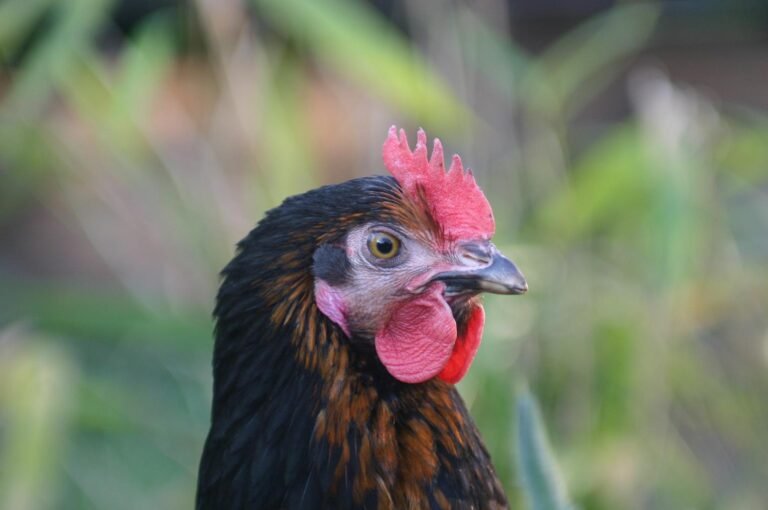Border Terrier Barking Guide: Why, Problems and How to Stop
Bringing a new dog into your home is a big commitment.
When choosing a Border Terrier for your family, it’s a good idea to find out as much as you can about the breed. And how much noise your new bundle of fluff is going to make is a critical factor to keep in mind for any potential owner.
You adore the Border’s appearance and personality, but do they yap too much?
Border Terriers are strong-willed, expressive dogs that were bred to hunt and alert through their vocalisations. They form close bonds with their human family, that they may express by barking in specific situations. Border Terriers, when not properly raised, can make a lot of noise and bark, but it can be reduced through consistent training.
Let’s have a look at some of the causes of excessive barking and how to reduce it.
The Border Terrier Barking Guide
In this article, we’ll go over the reasons for Border’s barking. To begin with, we want to address some of the most frequently asked topics regarding Borders and their barking, in case you are considering buying one so that you know what you’re getting yourself into with these smart little dogs.
Border Terriers were originally bred to be hunting dogs, and as a result, they will constantly be in need of a job to keep them busy. Which means there must be a lot of mental and physical stimulation every day for your Border to keep him content. Otherwise, he’ll find his own way to amuse himself, which may include barking at anything he spots outside or within the house.
They have an innate urge for independence, despite the fact that they form very close links with their humans. Borders respond best to a strong leader and will do anything to please you.
These dogs are by no means vicious, but when protecting themselves and their territory, they can become aggressive. Because they had to get along with horses and other hounds on hunts, they aren’t known to be aggressive. It’s still important to socialise pups from a young age so they don’t grow up to be aggressive.
Do Borders Bark a Lot?
In order to communicate with us and amongst themselves, dogs bark, and that’s only natural. Since some owners might find the bark amusing or cute, while others think it is too much noise in an apartment building or neighbourhood, the answer is subjective. If the barking is causing problems, it could be an indication that it’s time to change things up.
One of our adult Border Terriers used to bark a lot, especially when strangers walked past the front door, which we assumed was a protective instinct on his behalf. He’s become more subdued and uses different ways to communicate.
The way Border Terriers have been bred is one of the reasons why they might bark so often. Instead of them being bred to be companion dogs for humans, these dogs are bred to hunt foxes. They developed a strong voice that they needed to alert while working underground.
What Does a Border Terrier Bark Sound Like?
Play the following video to hear a Border bark and whimper:
Why Do Border Terriers Bark?
These inquisitive, lively little dogs love to explore new places with their owners and are always up for a good game of chase. But their barking could be annoying if it happens a lot or doesn’t seem to have a reason.
Borders bark for a variety of reasons, according to their owners, including:
- Attention seeking: This is typical in dogs who have been left alone too frequently or who are bored. They need to interact with you and remind you that they are present, otherwise, they will bark to call you back home.
- Protecting territory: A common explanation why Border terriers bark while no one is home, especially if they’re left alone, is to defend the home’s territory. Some owners claim that their dogs bark at passers-by, other dogs, and so on.
- Letting you know there’s a problem: Something as simple as needing to go for a toilet break, or something as serious as being afraid could trigger this.
- Getting you to play: For some dogs, barking is a reliable method of getting attention and enticing their owners to play.
- Pain: This is a legitimate reason for Borders to bark, and it is one that should not be overlooked. It is imperative that they receive medical attention if they are experiencing any discomfort.
- Left in the crate: It is not unusual for Borders to bark to express their displeasure when they are placed in a crate if they are not acclimated to it.
- Boredom: When Border Terriers are left alone at home, they can get bored quickly because they are such active dogs.
- Anxiety or stress: Borders, like humans, will bark when they are stressed.
- Tiredness: When weary, hyperactive dogs may become excitable and waggy, and some may even bark to relieve their tension.
- Excitement: Your Border is sure to greet you with a joyful bark when you arrive home after a long day at work. This is a perfectly normal way for them to greet you. Other times when he gets enthusiastic are when you get his leash ready or fetch his meal. In general, Border’s excited barking isn’t that loud.
- Hunger: Borders will remind you when it is their lunchtime, as they dislike being hungry.
- Fear: There are distinct behavioural differences in the barking of a Border when he’s afraid. Unfamiliar objects, strangers, and loud noises are all common sources of anxiety. A black dog in the distance, or even an umbrella or stool, can cause some of them to become fearful.
- Separation anxiety: Borders have a tendency to suffer from separation anxiety, which can be a serious problem. One of our Borders had this issue when we brought him home from the shelter. He acted as if he believed he’d been abandoned and that we wouldn’t return.
- Poor socialisation: Poorly socialised dogs will bark at other people and animals. They can even become anxious with lots of people in a room.
- Aggression: Borders are friendly animals, and it is uncommon for them to bark out of aggression. Should it occur, just steer him away from the situation. Aggressive behaviour should be handled with love and care, rather than screaming.
What Do Border Terriers Bark at Most?
The question, “What does a Border Terrier bark at?” may be on your mind. It all depends. The reasons why they bark can vary from dog to dog.
What we do know about dogs barking is that they commonly do so when visitors come to the door or when strangers approach them on the street. They may also bark if they are left alone for a prolonged amount of time or if they are confined in a crate. Some dogs will bark even during car journeys.
Here are some of the most common ones:
- barking when left alone
- barking for attention
- barking at other dogs
- barking at the door
- barking at strangers
- barking in the car
- barking when crated
Other questions that may come up include:
Do Border Terriers Bark for Attention?
Border Terriers use barking to communicate with people. Barking is a common way for dogs to get their owners’ attention, signalling that they want something or that there is something wrong with the dog or the surroundings.
Constant barking in a Border could indicate health, behavioural, or anxiety issues. Border Terriers frequently bark at other animals, such as birds and squirrels, in addition to people they encounter. Additionally, they’ll yell at household appliances that move, such as ceiling fans or vacuum cleaners. Due to the dog’s perception of these things as potential intruders, they feel inclined to warn their owner of their presence.
Do Border Terriers Bark Loud?
It is common for Borders to bark when they see something they believe to be prey or if they are provoked, just like other smaller terriers. In their working days, with their human guards far away, it was critical that they could be heard in the event of getting stuck underground or in other emergencies. As a result, it’s not uncommon for them to bark loudly.
To put things in perspective, the bark of these dogs can be rather powerful and resonant: Rottweilers, Old English Sheepdogs, Bloodhounds, Border Collies, Australian Cattle Dogs, Basset Hounds, Alaskan Malamutes, Miniature Schnauzers, Beagles, Australian Shepherds, and Rhodesian Ridgebacks (source).
Unlike some of the other dog breeds described, Borders don’t have a deep bellow, yet they may still be rather noisy if they feel like it!
Do Border Terriers Bark When Left Alone?
Barking may be caused by restlessness, boredom, fear, or separation anxiety in certain Border Terriers who are left alone for too long. Neighbours may have an issue if your dog is prone to barking and whimpering while you’re away from the house.
To keep your Border from barking when you are gone for a few hours, give them lots of exercise, turn on the radio, and make sure they are playing with their favourite toys.
Border Terrier Barking Problems
A dog’s frequent barking can be extremely stressful for the owner, as well as a nuisance to others. In general, Borders’ barking doesn’t create a lot of trouble, but it’s worth being aware of the signs that indicate something is wrong.
The following is a list of possible triggers for Border Terrier barking that could lead to problems:
- Cats
- Owners
- Other canines
- Needing attention
- Visitors and guests
- Children and babies
- Meeting new people
- Sound of radio or TV
- When bored and alone
- Being confined in a crate
- Being left in the dark to sleep
- Being in the car or cars passing by
- Needing to go outside for the toilet
- Squirrels, horses, and other creatures
- When the doorbell rings or door knocks
- Territoriality or protectiveness of their owner
- Letting you know that they’re in distress or pain
How to Stop a Border Terrier From Barking
If your darling little otter face has become less than charming due to persistent barking, the first step is to figure out the reason for the barking so that you can stop it.
There are measures that can be taken to remedy it before it’s a nuisance, whether they do it out of fear, boredom, health, or simply for fun. If you think your pup’s barking is a sign of a health problem, please take him or her to the vet.
How Do I Get My Border to Stop Barking?
Let’s get that barking under control!
Since dogs learn through trigger and association, you can teach your dog to comprehend what you want by creating a link between silence and pleasantness for them. Your Border Terrier will learn to equate calm with positive things if you give him a reward every time he goes a few minutes without barking.
Treats, petting, and affection are examples of what dogs generally regard as good things. We want to create positive experiences when your dog is silent instead of punishing behaviour that comes natural to them and finding it enjoyable (barking).
1. Use the “quiet” command to teach them not to bark
To begin with, it is critical that you train your dog to stop barking unduly by applying the “quiet” command.
This is a basic strategy that encourages them to remain silent.
When it comes to teaching it, the Dog Training Excellence website has excellent visual instructions:
- When your dog starts barking, wait for them to stop.
- Say “quiet” and then “good boy”.
- Then give them a treat.
- Repeat it several times per day, changing the steps as needed.
Infographic by dog-training-excellence.com
2. Remain calm and refrain from yelling
It is critical to stay calm and avoid becoming frustrated and angry when training a Border to stop barking. Barkers can be stubborn but respond well to positive reinforcement methods, not threats and orders, so shouting and threatening to stop barking won’t work.
It’s counterproductive to yell at a dog since it makes them more frightened or aggressive. An animal’s willingness to cooperate and follow directions decreases when they feel threatened.
3. Ignore the barking
Because many Border Terriers bark to be noticed, not paying attention to them when they bark will help break the habit. When they’re ignored, they realise that barking won’t get their attention, so they don’t bother.
Ignoring your dog implies not talking to, looking at, stroking, or even calming him.
This can work well for attention-seeking puppies, only rewarding them when the barking stops entirely.
4. Do not reward the barking
Dog owners sometimes unintentionally reinforce barking. It might seem simple, but any form of attention whilst barking might make your pet feel rewarded and encourage them to continue with it.
Wait a few minutes for your pet to calm down if he’s barking. By calling your dog’s name or trying to discipline him in any manner, you’re merely perpetuating the problem. The more time and attention you give your dog, the more likely he is to bark.
5. Familiarise him with the triggers
If you want to stop your Border Terrier from barking, it’s important to know what causes it. Gradually introducing them to someone they constantly bark at could work well if they are triggered by that person.
If you want your dogs to ignore the doorbell, start by teaching them to accept its sound. To do this, practice the quiet command after ringing the doorbell and then give the dog a treat.
Since repetition, familiarity, and incentive are all part of the deal, this could work with other triggers as well.
6. Make sure your dog is exercised and active
If a dog’s environment is lacking in stimulation, he or she may turn to persistent barking. Do you provide enough space and toys for your Border to keep him mentally engaged?
A weary dog will typically bark less and behave better.
7. Get Your Border Socialised
Border Terriers can benefit from socialisation, which will help them adapt to new and unfamiliar situations.
Dogs, other animals, and people may scare a dog that has not been properly socialised. It’s advisable to introduce strangers to your Border gradually if they set off an uncontrollable barking. Play with him regularly and maybe teach him a few tricks if you want to keep him stimulated.
Your Border will become more comfortable with strangers the more he interacts with them.
8. Seek professional advice
If you can’t get your Border to stop barking at almost everything, you might have to get expert help.
Once your vet has ruled out any possible health problems, he or she should be able to recommend a good dog trainer.
Additional ideas to stop the noise
- Have your dog’s favourite treats on hand
- Get a dog whistle
- Begin socialisation from early on
- As a companion consider a second dog (if you have the means)
- Make use of a spray bottle
Don’t Give Up on Your Border Terrier’s Barking
Terriers in general are prone to developing unwelcome barking behaviours, and Border Terriers are certainly no exception. But they will do well if given the proper training and encouragement.
That isn’t to say they won’t ever bark again in excitement and for other reasons; it’s just how they communicate.
If your Border Terrier is barking incessantly and causing problems, try to isolate the source of the problem and eliminate it.
Some Border Terriers might be challenging to train. However, this is not a cause for resignation. You can generally change your Border’s barking tendencies with time and patience.
It’s worth the effort, and your Border will be happier as a result.
Thank you for taking the time to read this, and we hope it will help you teach your Border to quit barking!
Keep checking back at Border Terrier Guide for more helpful information.




